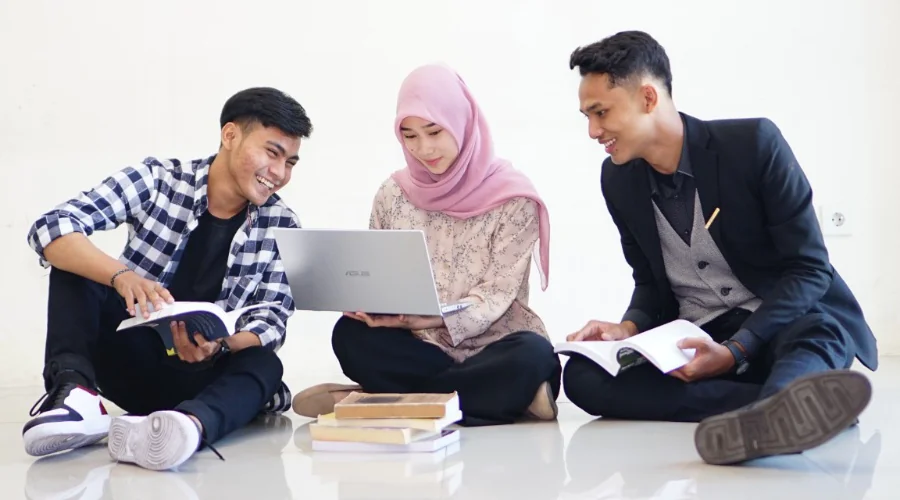
- 15 Aug
- 2022
Ilustrasi gambar mahasiswa UM Surabaya (Dok: Humas)
UM Surabaya Lecturer Shares Tips on Adaptation in Campus Environment for New Students
When in a new environment, of course someone needs to adapt. Including when you are a freshman at a college. The atmosphere, regulations, patterns of habits, and learning systems certainly have differences from the high school environment which is the previous level.
For a student who is difficult to adapt, of course this will be an obstacle in carrying out lecture activities. Many students are overwhelmed or even have a crisis of motivation, when they fail to adapt.
Holy Ichda Wahyuni PGSD Lecturer at the Teaching and Education Faculty (FKIP) UM Surabaya shared tips so that new students can easily adapt to the campus environment.
According to Holy, the first thing that needs to be done for a new student since he decides to choose a study program, he must be in a steady state of mind. Purely that the study program chosen is his own choice not because he joins in, according to passion and likes that field of knowledge.
"This is very important, so that during lectures, students feel happy and become one of the factors in building motivation to study," said Holy Monday (15/8/22)
Second, when entering the new student orientation period, a student needs to understand all campus rules or regulations, campus maps, especially the location of important bureaus or service institutions that are often related to student lectures.
Apart from listening to explanations during the orientation period, to find out the regulations and layout of the campus service center, students can also do this by visiting the official website/campus website to download important documents such as academic handbooks. It is from this academic handbook that students get a lot of information related to the curriculum in their chosen study program, such as information on credits, choice of courses, and so on.
The third is adaptation to the habit of reading articles in scientific journals. This is very important, because every course in tertiary institutions is supported by rich references so that students can understand them comprehensively.
"Getting used to reading journals can also be a bridge for students to find research ideas for final project material. This is often considered to be something that is too early to do at the start, even though in fact it has to be done early on," he added again.
According to Holy, at the beginning of lectures, new students can also make a personal approach with seniors so that they can dig up various information needed. Including what is not left behind is about student activity units, or internal campus organizations. So besides studying, students can also increase their capacity through experience in organizations.
In student organizations, you will meet many new friends with frequency, so that you can expand your network/friendship circle.
"Because, studying is not only about activities in class, with material that is limited by credits, but during lectures, students should forge a lot to be able to deal with various problems, positive new experiences, which greatly affect the student's personality and performance." Again.
Furthermore, Holy emphasized to new students, since someone decides to adapt by studying while being in an organization, he must also be prepared for further adaptations. This advanced adaptation is all about learning time management.
"When students' adaptive behavior has been honed through good time management in lectures even with side activities, here students have also learned to adapt to various situations in their lives," Holy concluded.










(0) Comments